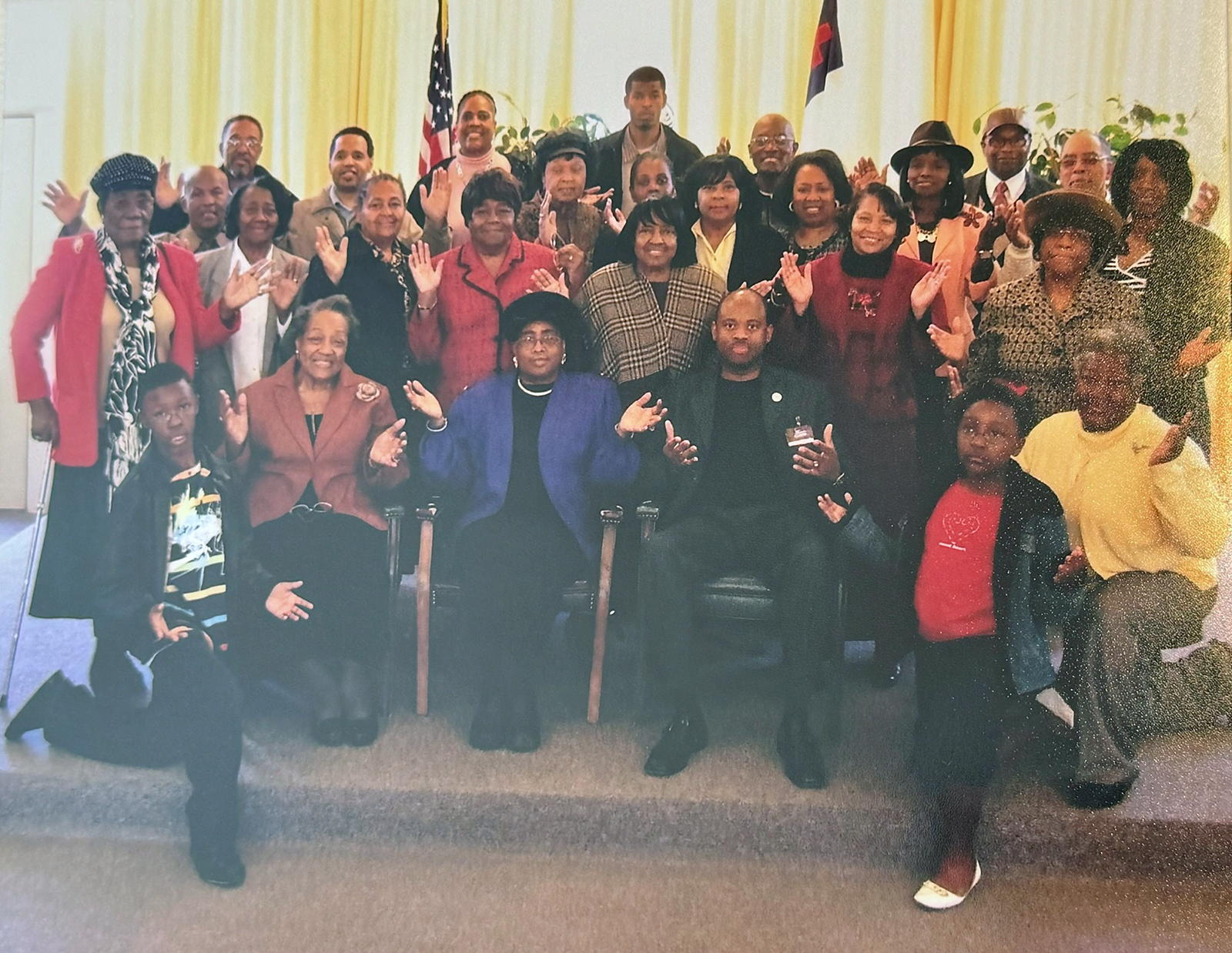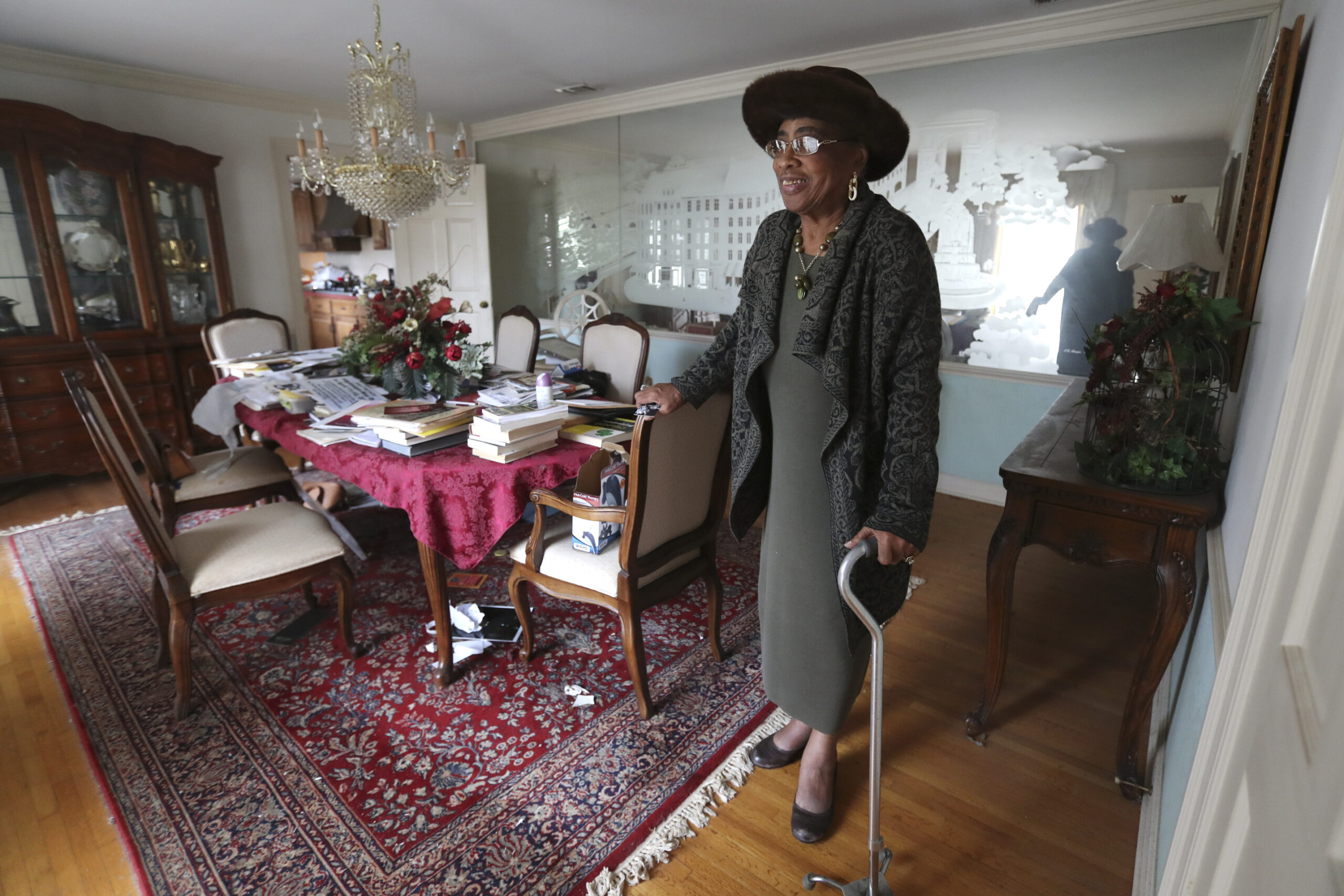
[ad_1]
(RNS) — Mother Mary P. Patterson, who was the widow of a Church of God in Christ presiding bishop and became known for her efforts to preserve the history of the historically Black Pentecostal denomination, died on Monday (June 24).
Patterson, 83, died in Memphis, Tennessee.
“Mother Patterson was a tireless crusader for preserving the Church Of God In Christ Heritage and that of Pentecostal-Holiness around the world,” reads a Wednesday (June 26) announcement on the Facebook page of the Church of God in Christ. “Our History is much richer because of her life’s work. May we never forget.”
Patterson had been diagnosed with cancer and had been under hospice care, said Darrin Rodgers, director of the Flower Pentecostal Heritage Center in Springfield, Missouri.
In 2012, Patterson presented the papers of her late husband, Bishop J.O. Patterson Sr., the first elected COGIC presiding bishop, to the center, which is located at the national offices of the Assemblies of God and is the world’s largest Pentecostal archive.
Patterson, a retired real estate agent who headed her own travel agency, founded the Pentecostal Heritage Connection, dedicated to planting historical markers honoring COGIC leaders across the South. In 2021, a ceremony unveiling an 8-foot aluminum sign on a corner in Little Rock, Arkansas, was attended by regional religious leaders, a representative of the governor and scholars who traveled to the state for the occasion.
RELATED: Women breaking through to top roles in Black churches
The marker noted the spot where Bishop Charles H. Mason, the founder of COGIC, had said he was inspired by God to name his denomination the Church of God in Christ.

Mother Mary Patterson, seated center, with a COGIC Heritage Celebration and Tour in Lexington, Mississippi, in 2008. (Photo courtesy Calvin Robinson)
“She was big into building bridges,” said Rodgers. “That was extremely important to her. She did not want to have something narrowly white or narrowly Black or narrowly COGIC. She said that this history belongs to everybody.”
In 1999, Patterson was an unsuccessful candidate for vice chairman of COGIC General Assembly.
“I believe that as a woman of God, I am especially capable of fulfilling these requirements,” she wrote in a campaign brochure. “God created woman, first of all, to help and to assist man. Therefore, my efforts have biblical support.”
Patterson, whose denomination traditionally only recognizes men as ordained ministers or bishops, said she decided to form her own ministry for her historical pursuits.
She told Religion News Service in 2021: “It shows other young women that you don’t have to be behind the pulpit in order to do a work for the Lord.”
In addition to getting state-designated historical markers erected in Mississippi and Arkansas, Patterson enhanced the telling of Church of God in Christ history in Memphis museums, organized summits about COGIC heritage and worked to get a bust of Mason erected outside Mason Temple, COGIC’s world headquarters.

Mother Mary Patterson poses at her dining room table in her Memphis, Tenn., home, Dec. 1, 2021. The material on the table was used by Patterson in her campaign to post historical markers about Church of God in Christ leaders. (AP Photo/Karen Pulfer Focht)
Pastor Calvin Robinson, leader of a COGIC church in Quincy, Florida, and the historian for COGIC in western Florida, said Patterson was more interested in getting that bust in place than having her name attached to it.
“With her, her satisfaction was just it was done,” he said, recalling her telling him: “As long as it’s being done, God gets the glory for it.”
David Daniels, a professor of the history of Christianity at McCormick Theological Seminary and a bishop of the denomination, said Patterson determined to focus on people, including scholars, outside COGIC to expand knowledge about the denomination of which she was a lifelong member.
“She wanted to be able to do her work outside of the denomination, because she wanted to be able to reach people who don’t necessarily belong to the Church of God in Christ,” he said. “And she saw it as a badge of honor.”
Patterson organized bus tours of sites related to COGIC and other Pentecostal faiths, including one when the Society for Pentecostal Studies met in Memphis in 2011.
Beyond her work on the church’s heritage, Patterson also was a supporter and encourager of pastors and women in the church.
“She helped so many women in that church to get involved in businesses, and how to do ledgers, how to help them network, to get jobs,” said Sherry Sherrod DuPree, a Florida historian and former president of the Society for Pentecostal Studies. “Women would talk to her to find out ways to help themselves to do better in the community.”
RELATED: NEWS FEATURE: Black Pentecostal denomination turns 100 amid mainstream acceptance
[ad_2]